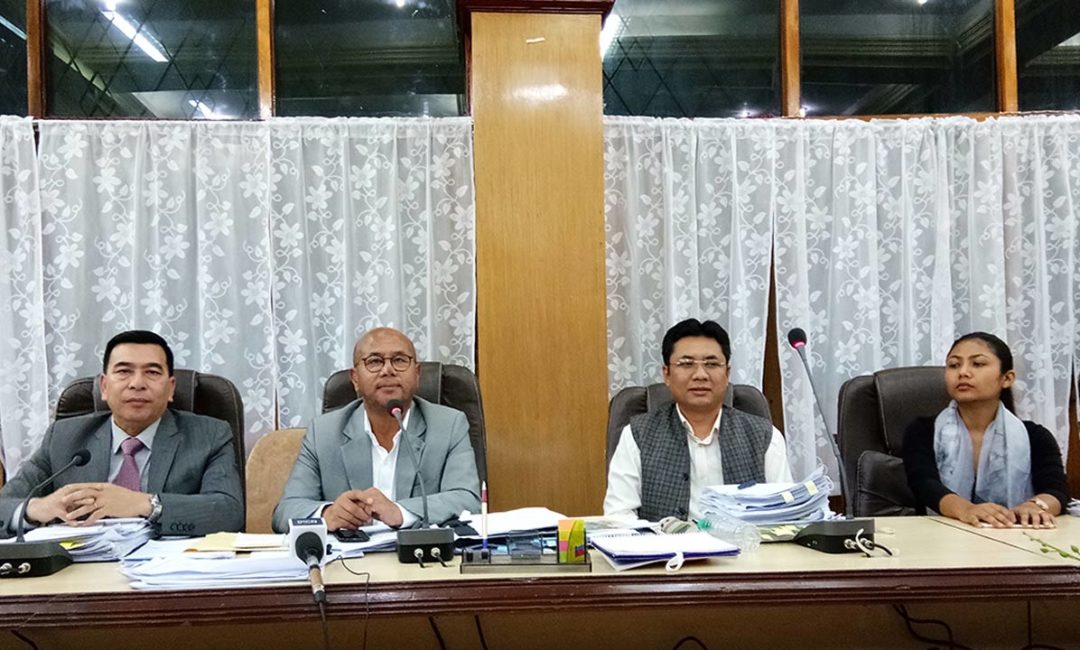Assembly panel recommends study on radiation level, uranium content in water bodies

The Assembly’s Committee on Environment has recommended the state government to engage an independent agency to conduct a study on the radiation level and uranium content in all water bodies in South West Khasi Hills district.
This was made in a report of the study tour conducted by the committee to Domiasiat, Nongbah Jynrin and Wahkaji area on November 3, tabled by its chairman Syntar Klas Sunn in the Assembly on Monday.
“The government may engage an independent agency or organization having expertise at its disposal to conduct a study on the radiation level in the villages surrounding Domiasiat including Uranium content in surface water of all water bodies flowing in the area. People of the area may need to be taken into confidence which carrying out this exercise,” the committee stated in the report.
The report said though the AMDhas stopped all activities in the area following the government recovation of the land lease to UCIL including suspension of uranium exploration & mining by UCIL, where certificate to establish (CTE) has also not been issued by MSPCB, there is however, a necessity to continue monitoring of the radiation level in the villages adjoining to Domiasiat. This may be carried out by MSPCB in collaboration with CPCB.

Stating that the comparatively higher reading of radiation level at the location near the Jimiri River is a cause of concern, the committee said as surface water is the main source of drinking water for the villages adjoining Domiasiat, the uranium content in water bodies have to be monitored on a regular basis.
Considering the varying radiation level in and around the area, the committee has also recommended that health survey may need to be conducted to ascertain the health condition of people residing in the area and report may be submitted to the Assembly by health department.
It said the location of the abandoned three uranium test mine pits and two repository tanks may be declared as protected/restricted area where only authorized personnel may be allowed access.
The committee also recommended the need to open a police outpost at Wahkaji for securing t his sensitive location.
Wahkaji is about 2 hours distance from Mawkyrwat and further, Domiasiat is another 1 hour distance by vehicle and another half and hour distance on foot.
“Considering the distance, committee recommends immediate posting of police personnel for securing this sensitive location by opening of police outpost at Wahkaji,” the report said.
During the interaction sessions at Wahkaji, the issue of health hazards arising out of the uranium radiation in the area was expressed by some representatives of concerned villages and by representatives of the NGOs.
They expressed that most of them were informed by an environmental activist who visited the site recently with measuring equipment that, ther eis a high level of uranium radiation due to crack developed in the repository tanks endangering the people of the surrounding villages.
The Syiem of Hima Langrin informed the gathering that, the cracks in the repository tanks were as old as 4 to 5 years back but many people were not aware as the repository tanks are located in a remote location where people hardly visit.
The report said the villages surrounding Domiasiat are situated on hilly terrain where the underlying rocks contains high grade uranium oxide deposit with uranium oxide content in sand stone is about 0.088%.
As such, the background radiation level in many parts of the areas are comparatively high.
It also informed that the drone pictures taken on November 3, indicates that the repository tanks where cracks may have occurred have been recently repaired.

Leave a Reply